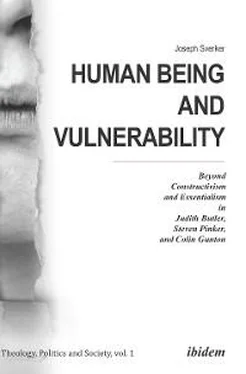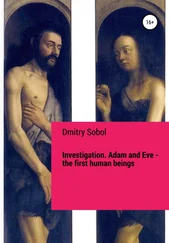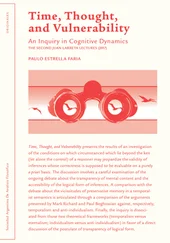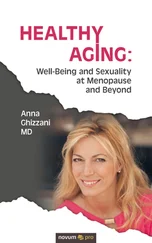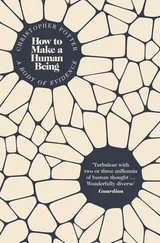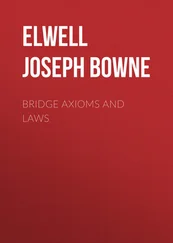Interestingly, sociologist Vicky Kirby has already pointed to how a nature/culture division is masked and maintained within a poststructuralist framework (Kirby, Quantum. See also Kirby (ed.), What if and Alaimo & Hekman (eds.), Material).
6There are of course other theologians that relate to New Materialism in different ways than what I propose here. One difference is the starting point from a context of radical theology or process theology as seen in, for example, John Reader, Theology and New Materialism: Spaces of Faithful Dissent (Basingstoke: Palgrave Macmillan, 2017) and Petra Carlsson Redell, Foucault, Art and Radical Theology: The Mystery of Things (London: Routledge, 2019) or Susan Hekman, “Feminist New Materialism and Process Theology: Beginning a Dialogue,” Feminist Theology 25, no. 2 (2017): 198-207.
7My suggestion is not in any direct sense an attempt to correlate culture and Christian theology but rather to integrate theology with a culturally relevant question where theology has social effects (Hefner, Human, 17ff, 25f, 217ff; Mattias Martinson, Postkristen teologi: Experiment och tydningsförsök (Göteborg: Glänta Produktion, 2007), 10; Christoph Schwöbel, “Where Do We Stand in Trinitarian Theology?: Resources, Revisions, and Reappraisals,” in Christophe Chalamet & Marc Vial (eds.), Recent Developments in Trinitarian Theology: An International Symposium (Augsburg: Fortress Press, 2014), 11.
8But important here are Alasdair C. MacIntyre, Dependent Rational Animals: Why Human Beings Need the Virtues (London: Duckworth, 1999); Catriona Mackenzie, Wendy Rogers, & Susan Dodds (eds.), Vulnerability: New Essays in Ethics and Feminist Philosophy (Oxford: Oxford University Press, 2014); Erinn C. Gilson, The Ethics of Vulnerability: A Feminist Analysis of Social Life and Practice (London: Routledge, 2014) and Sofia Morberg Jämterud, Human Dignity: A Study in Medical Ethics (Uppsala: Acta Universitatis Upsaliensis, 2016).
For a good overview of the relation between ethics and vulnerability, see Catriona Mackenzie, Wendy Rogers, & Susan Dodds, “Introduction: What Is Vulnerability and Why Does It Matter for Moral Theory?,” in Catriona Mackenzie, Wendy Rogers, & Susan Dodds (eds.), Vulnerability: New Essays in Ethics and Feminist Philosophy (Oxford: Oxford University Press, 2014).
9Martinson, Postkristen. Whether our society is “post-Christian” or “post-secular” the position and place of Christian theology in it needs to be carefully clarified (Ola Sigurdson, Det postsekulära tillståndet: religion, modernitet, politik (Göteborg: Glänta produktion, 2009)).
10Dennis Bielfeldt, “The Peril and Promise of Supervenience for the Science-Theology Discussion,” in Niels Henrik Gregersen, Willem B. Drees, & Ulf Görman (eds.), The Human Person in Science and Theology (Edinburgh: T&T Clark, 2000), 142.
11See John Webster, “Theological Theology,” in John Webster, Confessing God: Essays in Christian Dogmatics, Vol. II (London: T&T Clark, 2016). For a critique of this position see Mattias Martinson, “Silence, Rupture, Theology: Towards a Post-Christian Interdisciplinarity,” in Heather Walton (ed.) Literature and Theology: New Interdisciplinary Spaces (Burlington: Ashgate, 2011).
12See John Webster, “Theological Theology,” in John Webster, Confessing God: Essays in Christian Dogmatics, Vol. II (London: T&T Clark, 2016). For a critique of this position see Mattias Martinson, “Silence, Rupture, Theology: Towards a Post-Christian Interdisciplinarity,” in Heather Walton (ed.) Literature and Theology: New Interdisciplinary Spaces (Burlington: Ashgate, 2011).
13Hefner, Human, 151. See also William H. Newell, “A Theory of Interdisciplinary Studies,” Issues in Integrative Studies 19, no. 1 (2001): 1-25.
14Charles Taylor, A Secular Age (Cambridge, Mass.: Belknap Press of Harvard University Press, 2007), 4f; Charles Taylor, Sources of the Self: The Making of the Modern Identity (Cambridge, Mass.: Harvard University Press, 1989). See also Christian Smith, Moral, Believing Animals: Human Personhood and Culture (Oxford: Oxford University Press, 2003).
15William Desmond, Being and the Between (New York: State University of New York Press, 1995), 7. In Desmond’s argument, it is when our lived experience is “given” to us in this process of self-reflection that we also can receive it, a “beholding of” wholeness. That is, we become aware of it as an experience of being through self-reflection (Desmond, Being, 10).
16William Desmond, God and the Between (Oxford: Blackwell Publishing, 2008), 10.
17Eugene d’Aquili, “Apologia pro Scriptura Sua: Or, Maybe We Got It Right after All,” Zygon: Journal of Religion and Science 28, no. 2 (1993): 251-266, as quoted in Hefner, Human, 264.
18As Dawn Youngblood points out, interdisciplinary studies are often problem-oriented, as is mine (Dawn Youngblood, “Interdisciplinary Studies and the Bridging Disciplines: A Matter of Process,” Journal of Research Practice 3, no. 2 (2007)).
19J. T. M. Miller, “Methodological Issues for Interdisciplinary Research,” Postgraduate English: A Journal and Forum for Postgraduates in English, no. 23, Sep. 2011 (2011), 8.
20Peter L. Berger & Thomas Luckmann, The Social Construction of Reality: A Treatise in the Sociology of Knowledge (Garden City, N.Y.: Anchor Books, 1966).
21Christian Smith, What is a Person?: Rethinking Humanity, Social Life, and the Moral Good from the Person Up (Chicago: The University of Chicago Press, 2010), 121ff.
22Smith, Person?, 122. Smith calls the weak version of social constructivism the ‘realist’ version, linking it thus with the other essential epistemological starting point in his argument, namely, critical realism.
23Smith, Person?, 122.
24Ian Hacking, The Social Construction of What? (Cambridge, Mass: Harvard University Press, 1999), 24ff. Smith’s view of ‘strong’ constructivism comes close to what Ian Hacking, in reference to John Searle’s work on social constructivism, calls ‘universal constructionism’ that would claim that ‘everything’ is socially constructed (Hacking, Social, 24). But, the term ‘strong’ is to be preferred over ‘universal’ since it indicates a continuum and with no necessary decisive point of transition from ‘weak’ to ‘strong’ versions of constructivism.
25Judith Butler, Bodies That Matter: On the discursive limits of “sex”, Special Indian ed. (New York: Routledge, 2011), xv.
26Butler, Bodies, xv.
27Butler, Bodies, xvi.
28Butler, Bodies, xvi.
29See Lena Gunnarsson, On the Ontology of Love, Sexuality and Power: Towards a Feminist-Realist Depth Approach (PhD, Örebro University, 2013), 25, chs. 3 and 6.
However, there is no consensus on how to categorize Butler. Lois McNay, political theorist, sees Butler’s view on subject, psyche and agency as a “constructivist perspective” (Lois McNay, “Subject, Psyche and Agency: The Work of Judith Butler,” Theory, Culture & Society 16, no. 2 (1999): 175-193, 176). The political theorist Moya Lloyd, on the other hand, argues that Butler should be called a “deconstructionist” (Moya Lloyd, Judith Butler: From Norms to Politics (Cambridge: Polity Press, 2007), 72). However, as sociologists John Hood-Williams and Wendy Cealey Harrison point out, Butler does not use Derrida in a particularly deconstructivist way but rather uses Derrida’s ideas methodologically (John Hood-Williams & Wendy Cealey Harrison, “Trouble with Gender,” The Sociological Review 46, no. 1 (1998): 73-94, 81). And theologian Marcella Althaus-Reid, sees Butler as interrogating materiality as constructed through performativity (Marcella Althaus-Reid, “Bodily Citations: Religion and Judith Butler,” Journal of Contemporary Religion 22, no. 3 (2007): 416-418, 416. Political theorist Stephen K. White also views Butler as a constructivist thinker, but, importantly, with weak ontological assumptions (Stephen K. White, Sustaining Affirmation: The Strengths of Weak Ontology in Political Theory (Princeton: Princeton University Press, 2000), 85).
Читать дальше
